Description
ABSTRACT
OPEC Oil Production Management as a Violation of Article XI of GATT: The Need for a Philosophical Shift
Aladejare Adetola* and Okoeguale Hilary*
The preambles to the Marrakesh Agreement which established the World Trade Organisation (WTO) encourages the production of, and trade in goods and services with the aim of optimally using the world’s resources. The provisions of Article XI of the General Agreement on Tariffs and Trade (GATT) prohibit quantitative restrictions on export and import from one member state to the other. Prima facie, this appears to be at variance with Article 2 of the OPEC Statute which allows OPEC to manage oil supply to the international market through production quotas to its members. This paper interprets the provisions of Article XI using WTO case laws and the Vienna Conventions on the Law of Treaties and evaluate the divergent views of scholars on the subject. It then goes ahead to argue that the supply-control model of OPEC should be jettisoned for a free market approach.
INTRODUCTION
The point of divergence between the philosophical underpinnings of the WTO/GATT1 and OPEC2 is acute.3 While the WTO regime encourages the free movement of products based on the theory of comparative advantage,4 and places a high premium on market forces determining prices, OPEC operates on the belief that open market free trade will inevitably lead to wasteful competition which will be inimical to the interest of its members in the long run. It seeks to secure the interest of its members by regulating the amount of oil extracted and supplied to the market by each member thereby controlling oil price as a result of the consequent demand and supply effect. This is achieved through the use of production quota from which members are not expected to deviate. The quotas have stifled competition which has in the past driven up the price of crude oil in a manner that defies the efficacy of the forces of demand and supply in the allocation of resources and determination of price.
There is, on the other hand, Article XI of GATT which prohibits quantitative restrictions to importation and exportation. The Article only allows restrictions maintained through duties, taxes or other charges. The similarity between a production quota and export restriction is well recognised by the WTO.5 The World Trade Report was clear on this when it stated that “like an export restriction, a production quota in the exporting country lowers the supply in international market and increases the world price, thus shifting the rent from the importing to the exporting country”.6
* LL.M, BL. Lecturer, Department of Public and International Law, Afe Babalola University, Ado-Ekiti
** LL.M, BL. Lecturer, Department of Public and International Law, Afe Babalola University, Ado-Ekiti
- World Trade Organisation and the General Agreement on Tariffs and Trade
- Organisation of Petroleum Exporting Countries
- Melaku Geboye Desta ‘The Organisation of Petroleum Exporting Countries, the World Trade Organisation, and Regional Trade Agreements’ (2003) 37(3) Journal of World Trade 523-551
- A. Sykes, Comparative Advantage and the Normative Economics of International Trade Policy, (1998) 1 JIEL 57
- World Trade Organisation, World Trade Report 2010: Trade in Natural Resources (2010) 185
- ibid

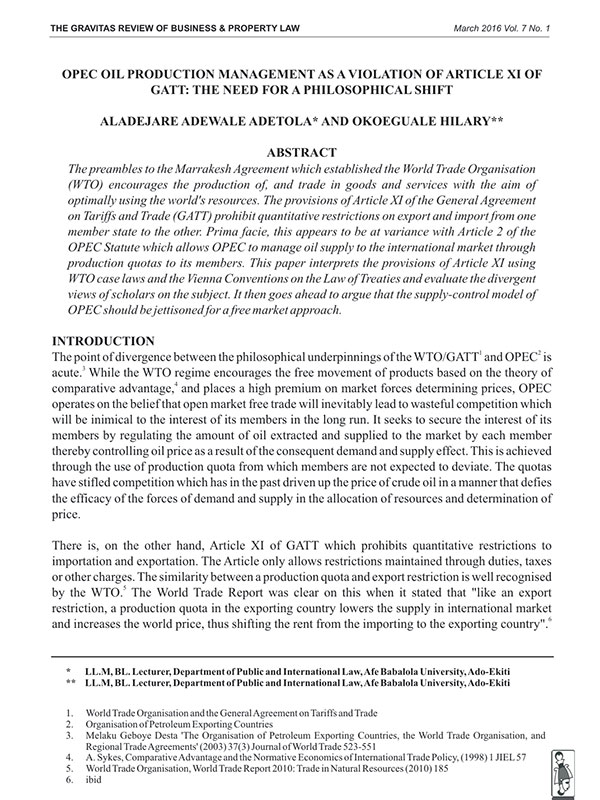
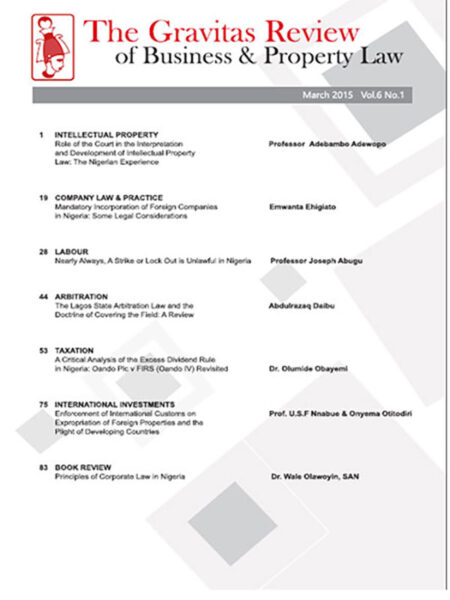
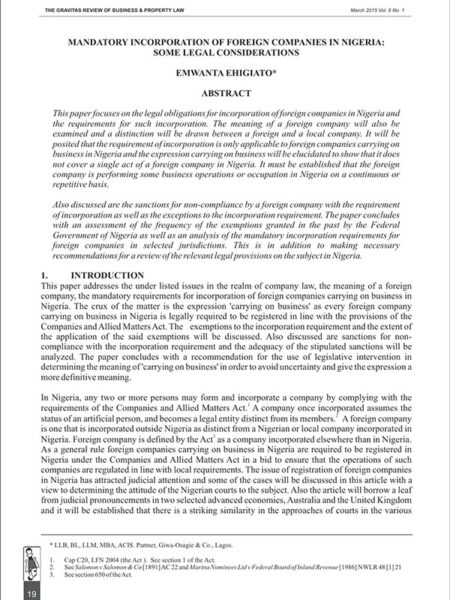
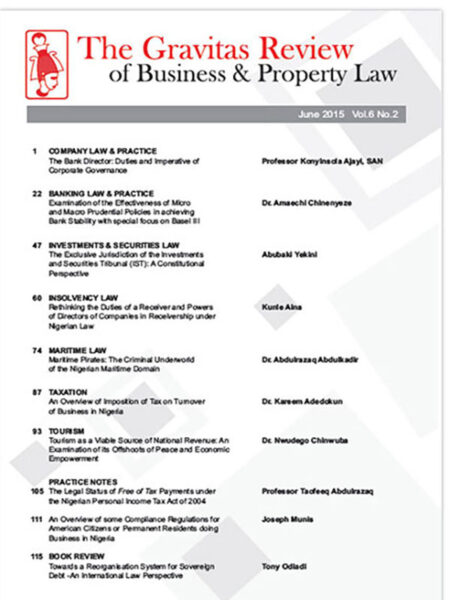
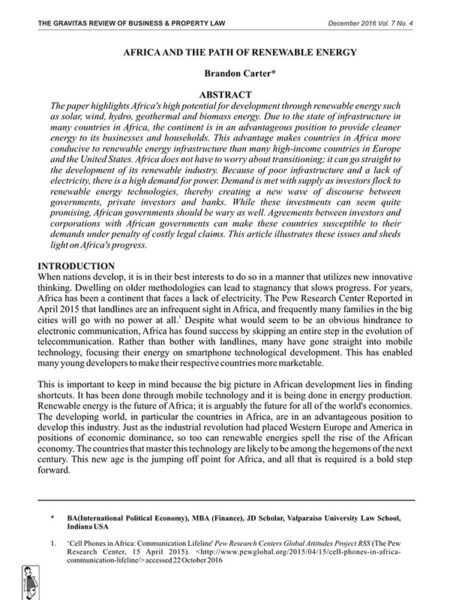


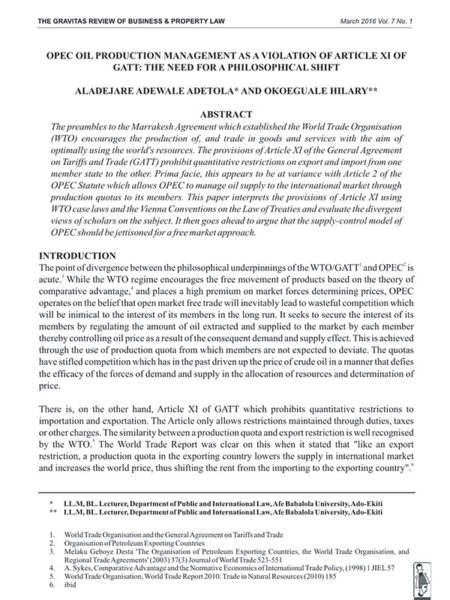
Reviews
There are no reviews yet.